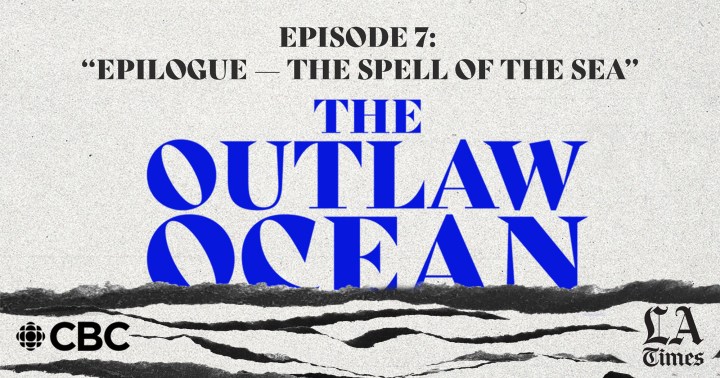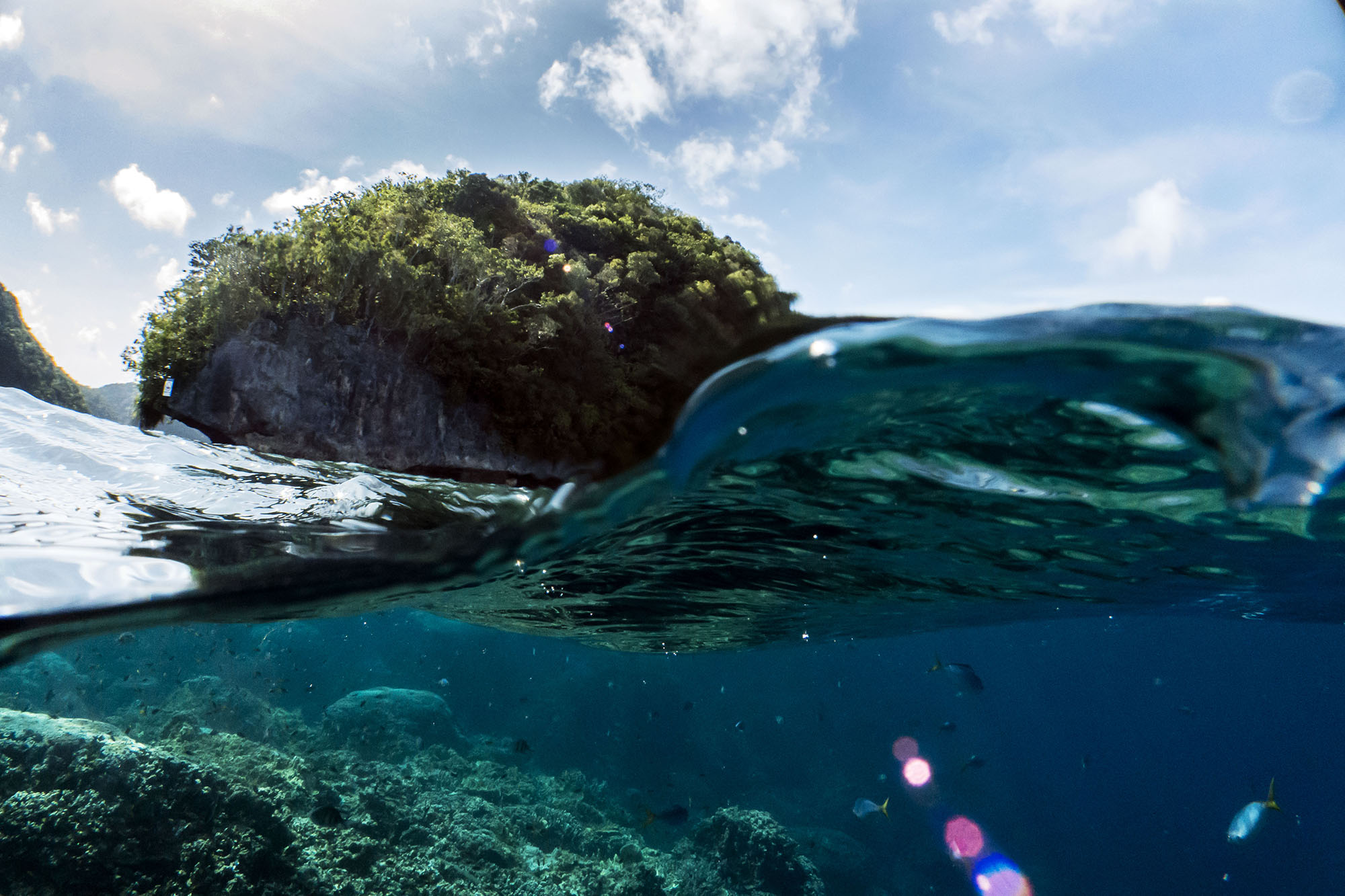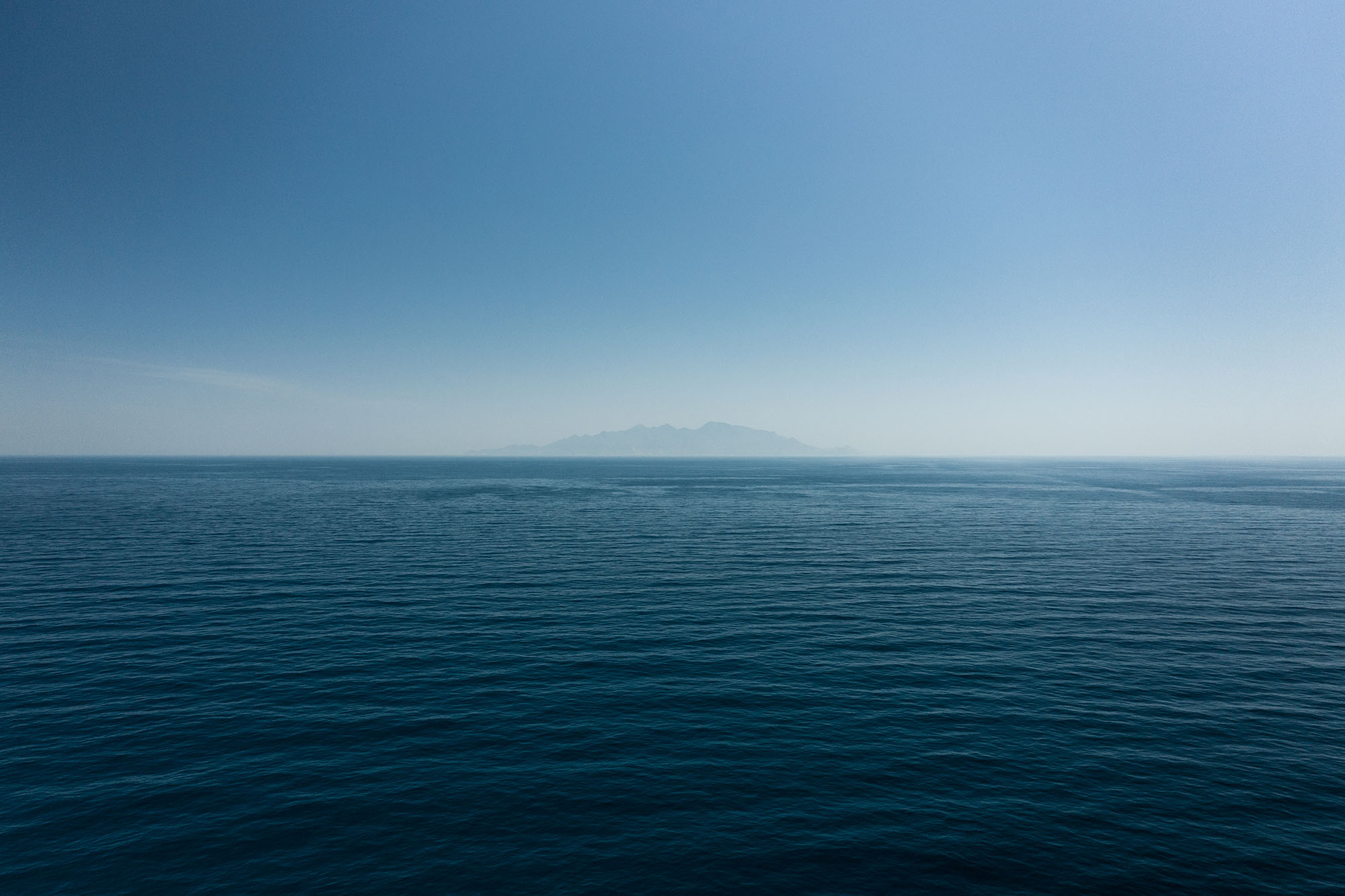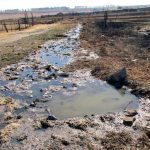THE OUTLAW OCEAN PODCAST
Episode 7: Epilogue — How the high seas are both a dystopian netherworld and a place of impossible wonder

The seventh episode of The Outlaw Ocean podcast shares a more personal and behind-the-scenes account of the reporting trips done mostly at sea — and how this experience can affect a person, for better and worse.
Covering two-thirds of the planet, the sea is a workplace for more than 50 million people. The oceans produce half the air we breathe and more than 80% of the products we consume. Aside from being vital, the oceans are also distinctly fascinating for the universality and peculiarity of mariner culture.
Home to a place of slavery and host to the most dangerous profession in the world (fishing), the sea is also a mesmerising realm of unmatched beauty.
The seventh episode of The Outlaw Ocean podcast, from CBC Podcasts and the L.A. Times, shares a more personal and behind-the-scenes account of the reporting trips done mostly at sea — and how this experience can affect a person, for better and worse. Listen to it here:
It discusses the importance of investigative reporting in a time of clickbait journalism and makes an argument for immersive storytelling in our era of information overload.
The Outlaw Ocean Project, a non-profit journalism organisation based in Washington DC, has spent years on the ocean uncovering things that many assume are fully locked in the past: piracy, whaling, slavery, privateers.
Impunity is the norm at sea — not just because of the lack of enforcement, but also due to the cast of characters out there who, with questionable credentials and motives, are left to take up the slack.
Bureaucrats rather than investigators conduct what rare inspections occur on vessels suspected of environmental or labour abuses.
Vigilantes and private mercenaries, as much as police or navy officers, patrol the high seas and pursue scofflaws.
What rules apply in international waters have been crafted over the years more by diplomats and the fishing and shipping industries than by lawmakers or labour lawyers.

Established by the government of Palau, reef sharks and other marine life occupy a massive protected marine reserve the size of France in the territorial waters of Palau in Micronesia. (Photo: Supplied)
The Outlaw Ocean Project also witnessed unparalleled beauty and true marvel, meeting bizarre, sometimes heroic actors in a setting that drowned the senses — a world with brighter sun, louder waves and stronger winds than on land.
But there is something else that transcends the darkness and the beauty offshore. The vastness of the seas has long provided an excuse for dumping waste into the world’s oceans. The crushing boredom at sea and the distinct way it tortured seafarers on abandoned vessels and armed guards on the floating weapons depots. The silence that fed gruffness and bred resignation on so many ships.

Ulleung Island beyond vast blue sea. It is South Korean island 120km east of the Korean Peninsula in the Sea of Japan. (Photo: Supplied)
These snapshots seemed to demonstrate that the outlaw ocean and the ships that traverse it are defined not just by the people who work these waters, but also by intangible forces like silence, boredom and vastness.
The ocean is outlaw not because it is inherently good or bad, but because it is a void — like silence is to sound or boredom is to activity.
While we have for centuries embraced and touted the life that springs from these waters, we have tended to ignore its role as a refuge of depravity.
But the outlaw ocean is real, as it has been for centuries, and until we reckon with that fact, we can forget about ever taming or protecting this frontier. DM/OBP
Ian Urbina is the director of The Outlaw Ocean Project, a non-profit journalism organisation based in Washington DC that focuses on environmental and human rights concerns at sea globally.
Listen to Episode 1 here
Listen to Episode 2 here
Listen to Episode 3 here
Listen to Episode 4 here
Listen to Episode 5 here
Listen to Episode 6 here




















 Become an Insider
Become an Insider
Comments - Please login in order to comment.